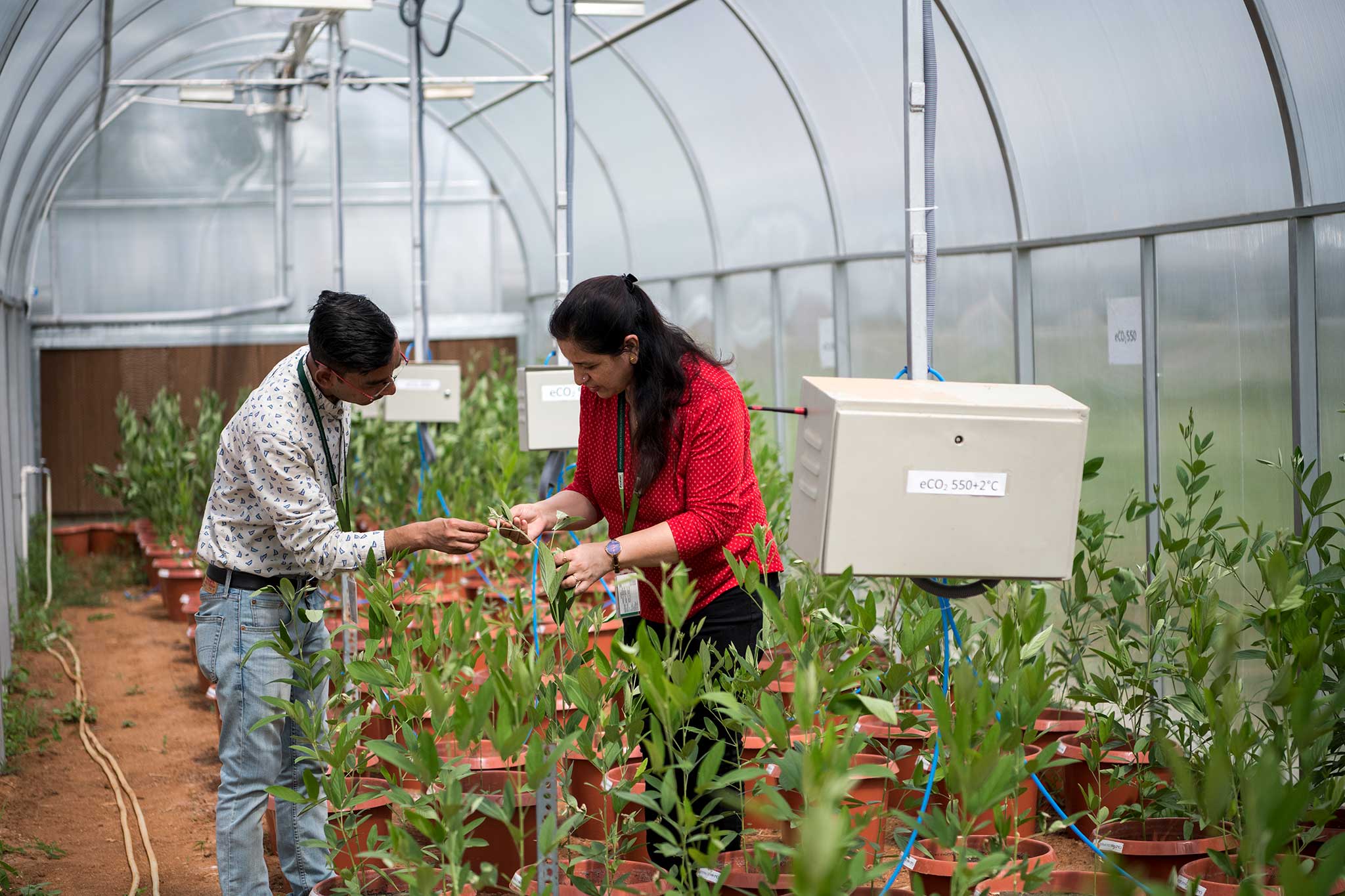The Climate Adaptation and Mitigation Cluster is a crucial part of our commitment to sustainable development and resilience in the face of a changing climate.
With rising global temperatures and more frequent extreme weather events, agriculture faces significant challenges. Our main goal is to enhance the resilience of semi-arid ecosystems, including people like farmers, extensionists, researchers, policymakers, and institutions at different levels (local, regional, global) dealing with climate change issues. To secure food and improve lives in semi-arid regions, we need innovative solutions that empower farmers and promote practices resilient to climate change.
Our cluster focuses on researching climatic risks in various agricultural sectors, mapping, profiling, and identifying technologies and practices to increase the resilience of individuals and groups, including men, women, and youth.

The Climate Adaptation and Mitigation Cluster acts as a driving force for research, innovation, and knowledge-sharing in climate change adaptation and mitigation. We test partnership models, capacity-building approaches, and communication strategies (like connecting science with policy) to scale up proven adaptation and mitigation options. Additionally, we work on expanding climate-smart agriculture (CSA) practices and supporting risk management by improving predictions of climate impacts on agriculture and providing better climate information and services.
Our diverse team of scientists, agronomists, climatologists, and social scientists collaborates closely with farmers, policymakers, and other stakeholders. Together, we develop practical, location-specific strategies to address challenges faced by communities in the semi-arid tropics.
Our cluster focuses on four key areas:
Climate Information Services (CIS): The provision of climate information services involves collating, analysing, packaging-up and distributing climate data on variables such as temperature, rainfall, wind, soil moisture, ocean conditions and extreme weather indicators. With high-quality data tailored to their needs, farmers can plan what to plant and when; armed with accurate data and analyses, policymakers have the information they need to make properly informed decisions. We therefore work to improve stakeholders’ ability (including farmers and extension agents) to access and use climate-related information through methods and training curricula that equip agricultural extension and other intermediary organizations to incorporate climate information into their interactions with rural communities. This is complemented by the development of interactive communication channels such as mobile phones and interactive radio programming.
Climate-Smart Agriculture (CSA): We promote the adoption of climate-smart agricultural practices that increase productivity, enhance adaptive capacity, and reduce greenhouse gas emissions. Through research and field trials, we identify and develop climate-resilient crop varieties, sustainable farming techniques, and water management strategies that improve productivity while conserving natural resources.
Risk and Vulnerability Assessment: We assess the vulnerability of agricultural systems to climate change and identify the risks associated with changing climatic conditions. By conducting comprehensive vulnerability assessments, we aim to provide accurate and timely information to farmers and policymakers, enabling them to make informed decisions and develop effective adaptation strategies.
Policy Support and Capacity Building: We actively engage with policymakers at regional, national, and international levels to advocate for climate-resilient policies and strategies. Additionally, we provide capacity building and training programs to empower farmers and extension workers with the knowledge and skills required to implement climate-smart practices effectively.
In Kenya, we are leveraging the SourceTrace digital platform to disseminate farm advisories on good agricultural practices and weather advisories. During the COVID-19 pandemic in 2020, the platform reached over 20,000 smallholder farmers. In Senegal, through the AICCRA project, we began disseminating climate information services in June 2022.
The cluster has actively supported country-driven processes such as National Adaptation Plans (NAPs) and Nationally Determined Contributions (NDCs). Collaborating with multidisciplinary national research partners and experts in Ghana, Senegal, and Zimbabwe under the Agricultural Modeling and Improvement Project (AgMIP), we are advancing foresight approaches, AgMIP Representative Agricultural Pathways, and integrated ex-ante impact simulation modeling to inform decision priorities for policy and development investments at sub-national and national levels.
In Ghana, our climate-smart villages, enabled by a private-public partnership model, have provided climate information services to 300,000 farmers. Additionally, over 1,000,000 households across Malawi, Mozambique, Kenya, Ethiopia, Tanzania, and Zimbabwe have been trained and utilized various climate-smart agriculture (CSA) technologies. Notably, the doubled-up legume technology in Malawi, which involves intercropping pigeonpea and groundnut, has emerged as a highly successful CSA technology.
Through our research and outreach efforts, we strive to bridge the gap between scientific knowledge and on-the-ground action. We believe that by working together, we can build climate-resilient agricultural systems that safeguard food security, protect livelihoods, and promote sustainable development in the semi-arid tropics.